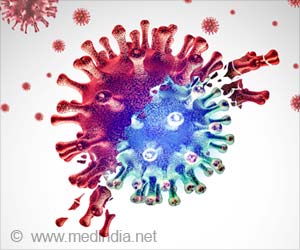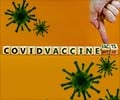A study reveals unique immune responses in certain individuals that help them resist or clear the virus quickly.
- The study identifies specific immune responses that help some individuals avoid or quickly clear COVID-19
- High levels of the HLA-DQA2 gene activity before exposure may prevent long-term COVID-19 infections
- Single-cell sequencing revealed new insights into early immune responses and potential targets for therapies and vaccines
Human SARS-CoV-2 challenge uncovers local and systemic response dynamics
Go to source). The findings, published in Nature, present the most detailed timeline of how the body responds to SARS-CoV-2 or any other infectious disease. The effort is part of the Human Cell Atlas initiative, which aims to map all cell types in the human body.
Some people can resist COVID-19 due to unique immune responses, which include high activity of a specific gene called HLA-DQA2 before exposure! #immuneresponse #health #medindia’
Immune Responses Following COVID-19
SARS-CoV-2 has infected millions of people worldwide with COVID-19. While COVID-19 is potentially lethal, many people will have come into contact with someone who tested positive yet avoided becoming ill themselves, either by remaining negative on PCR testing or having an asymptomatic case of the disease.This study is the first to capture immune responses following COVID-19 exposure in an immunologically naïve group, unlike earlier studies that only investigated individuals after symptoms onset.
In the UK COVID-19 Human Challenge trial, coordinated by Imperial College London, 36 healthy adult volunteers with no prior history of COVID-19 were given the SARS-CoV-2 virus through the nose. For 16 participants, researchers did comprehensive monitoring of their blood and nose linings, recording both the entire infection and immune cell activity before the infection event. The Wellcome Sanger Institute and UCL then employed single-cell sequencing to build a dataset containing over 600,000 unique cells.
Across all individuals, the team revealed previously unknown reactions involved in early viral identification. This included the activation of specialized mucosal immune cells in the blood and a decrease in inflammatory white blood cells, which normally engulf and destroy infections.
Immune Responses in Individuals Who Did Not Contract COVID-19
Individuals who promptly cleared the virus displayed modest, previously unseen innate immune responses rather than a normal widespread immune response. Researchers believe that high levels of activity of a gene known as HLA-DQA2 before exposure helped people avoid long-term infections. In contrast, the six people who developed a prolonged SARS-CoV-2 infection had a quick immune response in the blood but a slower immunological response in the nose, allowing the virus to establish itself.Dr. Rik Lindeboom, co-first author of the study and now at the Netherlands Cancer Institute, stated: "This was an incredibly unique opportunity to see what immune responses look like when encountering a new pathogen - in adults with no prior history of COVID-19, in a setting where factors such as time of infection and comorbidities could be controlled."
Dr. Sarah Teichmann, senior author of the study and co-founder of the Human Cell Atlas, formerly at the Wellcome Sanger Institute and now based at the Cambridge Stem Cell Institute, University of Cambridge, said: "As we build the Human Cell Atlas, we can better identify which of our cells are critical for fighting infections and understand why different people respond to coronavirus in different ways." Future research can use our reference dataset to see how a natural immune response to a new disease compares to a vaccine-induced immune response."
Shobana Balasingam, research lead in Wellcome's Infectious Disease division, stated, "Human challenge models are an essential approach to improve our understanding of how the body responds to infectious disease. These investigations allow us to closely examine what happens from the moment of infection, tracking the immune response to the development and severity of symptoms. These findings are an exciting addition to our understanding of how different people may respond to or be protected from COVID-19 infections. We need to understand how factors such as natural disease exposure influence the body's reaction to the virus or vaccination. Therefore, it is critical that research like this spread to low-resource contexts where diseases are endemic, to ensure we are developing context-specific techniques.
Reference:
- Human SARS-CoV-2 challenge uncovers local and systemic response dynamics - (https://www.nature.com/articles/s41586-024-07575-x)
Source-Medindia










